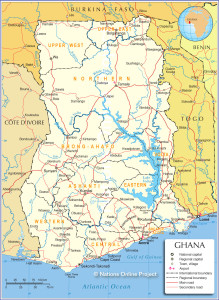Jeffrey Paller ~ Rising Through Cities? A Look At Ghana
No comments yet A new report by the World Bank, “Rising through Cities in Ghana” analyses the rapid transformation of a country whose urban population has grown from 4 million in 1984 to more than 14 million today. 51% of Ghanaians now live in cities. Over the same period annual GDP growth has averaged 5.7%, the number of industrial and service jobs has increased by 21% and the capital city, Accra, has registered a 20% reduction in poverty.
A new report by the World Bank, “Rising through Cities in Ghana” analyses the rapid transformation of a country whose urban population has grown from 4 million in 1984 to more than 14 million today. 51% of Ghanaians now live in cities. Over the same period annual GDP growth has averaged 5.7%, the number of industrial and service jobs has increased by 21% and the capital city, Accra, has registered a 20% reduction in poverty.
However, in August 2014, a fiscal debt crisis forced the government to request financial assistance from the International Monetary Fund. And in May 2015, citizens of Accra peacefully protested the failure to resolve a three-year long electric power crisis that has sapped businesses and hindered economic growth.
The World Bank report, impressive for its presentation of unique data, comes at an important juncture for Ghana’s urban development. Three points are particularly notable:
1. Accra is not alone in driving Ghana’s urbanisation. While Accra gains a lot of attention for its role as a megacity on the continent, its primacy has actually declined. In 1984, Accra accounted for 24.4% of the population; by 2010, the figure was 16.6%. The report states that “the number of medium (20,000–50,000 people) and large medium (50,000–100,000) sized towns has quadrupled and tripled respectively.” Big cities like Accra, Kumasi, and Sekondi-Takoradi continue to grow, but an interesting and important area for future research will be the socio-political developments in regional urban centres like Tamale, Tema, Ashaiman, Cape Coast and Aflao.
Read more: http://www.africaresearchinstitute.org/ghana/
You May Also Like
Comments
Leave a Reply





